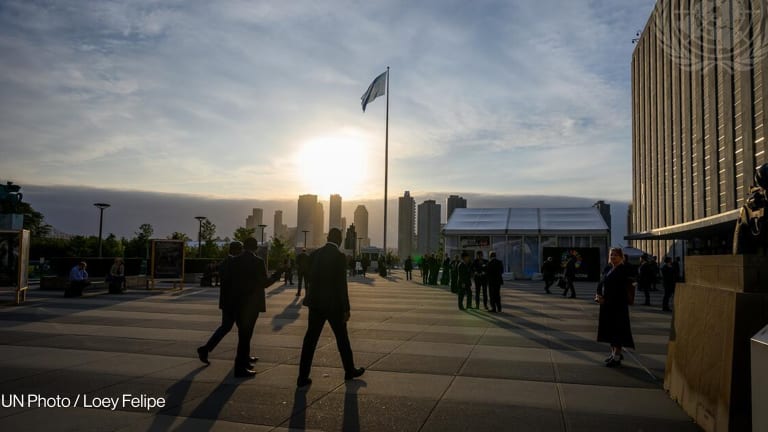AYETORO, Nigeria — Faith Aluko was asleep when she was suddenly jolted awake by a roar around 4 a.m. on the morning of April 19, 2023. She tottered to the door and saw her neighbors, all wet, scampering to safety as the ocean surge destroyed properties in a violent rage, some carrying bits of their belongings.
She jumped out in a frenzy, still clad in her blue nightgown, and started running toward her shop where she sold phones and clothes and also operated a mobile agent service. When she got there, it had crumbled in half, its goods washed away, almost unrecognizable.
“It was a real sad moment to see everything that I have worked for washed away,” Aluko told Devex, glints of hurt still evident in her eyes. “I graduated but without no job, I had to look for money to set up myself, and all of a sudden the sea just destroyed everything.”
Search for articles
Most Read
- 1
- 2
- 3
- 4
- 5








